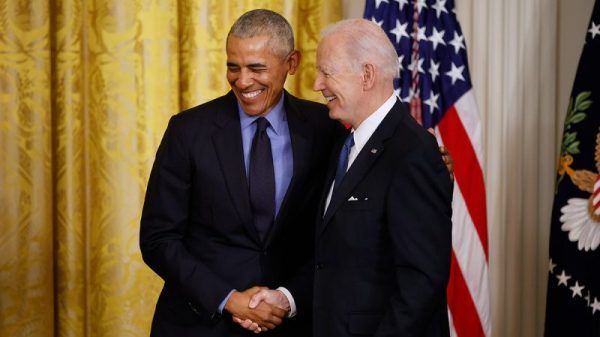Even before there was a Mueller investigation — that is, even before special counsel Robert S. Mueller III took over the probe into Russia’s efforts to interfere in the 2016 election — Donald Trump was disparaging the Mueller investigation. Trump immediately dismissed reports that his campaign that year had been aided by Russian actors and continued to dismiss accruing reports about investigations into possible connections between his campaign and the Russian efforts.
By the time Mueller got to work, Trump’s base of support was already stacked against the outcome. Over the next 20 months, as new details were reported and once Mueller finally unveiled the results of his investigation, the views of Trump’s actions and the probe itself barely budged. Democrats believed Trump had done untoward or illegal things; Republicans didn’t.
When Trump was later impeached on unrelated charges, the same pattern manifested. Trump didn’t have the lead time that he did on Mueller’s final report, but he’d already inculcated a sense among his supporters that he did nothing wrong and that claims to the contrary were rooted in politics. So, even as the impeachment inquiry undertaken by the House demonstrated clearly that he attempted to pressure Ukraine into aiding his 2020 reelection bid, partisan and overall views of his actions were stubbornly consistent.
Since Trump was first indicted on criminal charges last year, there has been a rumbling that, perhaps, this situation might upend the pattern. Wasn’t it possible that Trump, facing a criminal trial, might finally see his base turn against him — or at least erode?
It is possible, yes. But, so far, there is no indication it’s going to.
On Wednesday, Quinnipiac University released polling data looking at the trial that is underway in Manhattan, the one centered on Trump’s reimbursement to his then-attorney Michael Cohen for Cohen’s paying $130,000 to an adult-film actress before the 2016 election. Quinnipiac found that nearly three-quarters of Americans said they were following news about the trial at least somewhat closely, with little difference between the parties on the percentage following it very closely.
When the pollsters asked respondents whether they viewed the charges of falsifying business records as serious, though, Republicans were far less likely to do so. (The full question included a mention of the hush money payment, for what it’s worth.) Interestingly, respondents who said they weren’t following news about the trial closely were less likely to call the charges very serious but just as likely to say they were at least somewhat serious.
This has been the case for some time, that Republicans are less likely to view the charges Trump faces as serious in general, and they find the charges in Manhattan as less serious still.
Quinnipiac also asked whether respondents thought Trump had committed a crime or simply behaved unethically. Democrats thought he violated the law. A plurality of Republicans said he did nothing wrong.
Those paying less attention to the trial were less likely than those paying the closest attention to say that Trump did nothing wrong — reinforcing that a lot of those paying close attention to the trial are Trump supporters and Republicans. They are tracking the news but are not convinced by what they have seen, perhaps because of where they are tracking that news.
There were interesting divides within the partisan groups by gender. Only a third of Republican women said Trump did nothing wrong, compared with more than half of Republican men. Among independents, women were almost 20 points more likely to say Trump had broken the law, while men were 20 points more likely to say he had acted unethically. Women were also more likely than men to view the charges as very serious by a double-digit margin, regardless of party.
Poll questions that ask respondents whether an issue makes them more or less likely to support a candidate are notoriously misleading. If a Democrat is asked whether Issue X will make them more or less likely to support Trump, for example, many of them will say it does — even though the likelihood they would support Trump was already at or near zero.
With that in mind, it’s still worth considering the responses when Quinnipiac asked whether a conviction would alter how people planned to vote for president. Most respondents — probably accurately! — said it wouldn’t change their vote. Those paying the closest attention, though, were more likely to say their vote would change, perhaps reflecting interest in the case among more partisan observers.
Just over a third of Democrats, for example, said a conviction would make them less likely to vote for Trump, though Quinnipiac also found that only 6 percent of Democrats said they’d vote for him in the first place. A third of Republicans said they’d be more likely to vote for Trump if he is convicted, though 90 percent had already indicated that they planned to.
Some of those Republicans who say they would vote for Trump even if he is convicted reflect the fifth of Trump supporters who, in a Siena College poll conducted last month, said they thought he committed serious federal crimes. For many Trump supporters, in other words, it isn’t that they don’t believe the charges he faces, it’s that they don’t care.
Given all of this, it remains the safest default assumption that the Manhattan trial — like the Mueller probe and the 2019 impeachment — will have little effect on Trump’s political position.


































